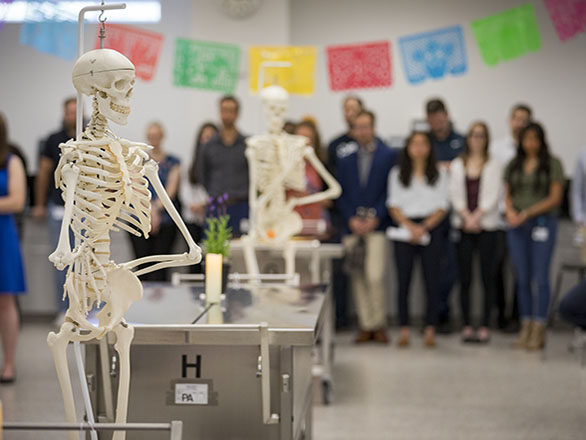
The University of Nevada, Reno School of Medicine's Nevada Organ Donor Program was established in 2006. Today, the program funds the donor registry, online forms, educational materials, DMV brochures, media campaigns and website management.

The University of Nevada, Reno School of Medicine's Nevada Organ Donor Program was established in 2006. Today, the program funds the donor registry, online forms, educational materials, DMV brochures, media campaigns and website management.
A family waits and hopes a new heart will arrive to save their father's life. A mother now walks without pain because of a bone transplant. A young boy grows up to lead a healthy life thanks to a kidney transplant.
Currently, in the United States:
When you receive or renew your driver's license at the Nevada Department of Motor Vehicles, you have a chance to make a difference and help save lives by adding a heart to your driver's license. The heart will proudly symbolize that you are an organ and tissue donor.
Organs that can be used to save lives include the heart, kidneys, pancreas, lungs, intestine and liver. Tissues include the eyes, skin and bones.
There is no cost to you, your family or estate to be a donor. Your choice to be a donor does not affect the quality of life-saving medical care you receive.
Organ and tissue recovery will only happen after every effort has been made to save your life. Throughout the process, a donor's body is treated with respect and dignity. Organs and tissues are recovered in a surgical procedure and all incisions are closed and dressed. Every effort will be made to minimize changes to the physical appearance.
A national organ and tissue donation system makes certain that all patients receive donations fairly—race, gender, age, income and other factors are not considered when determining who receives organs and tissue.
You have the option of becoming an organ and tissue donor and having this listed on your driver license or ID card. You may become a donor or remove the designation when the license is first issued, upon renewal or upon a change of address.
When you agree to become an organ donor, the DMV will ask whether you wish to donate $1 or more to the state Gift of Life Education Fund (Anatomical Gift Account). The funds are forwarded to the University of Nevada, Reno School of Medicine for educational programs on the importance of organ and tissue donation. If enough money is donated, the account can also provide financial assistance to those in need of a transplant.
The DMV accepts donations during the licensing process and through the purchase of Organ Donor license plates. You can also donate directly to the Gift of Life Education Fund.
